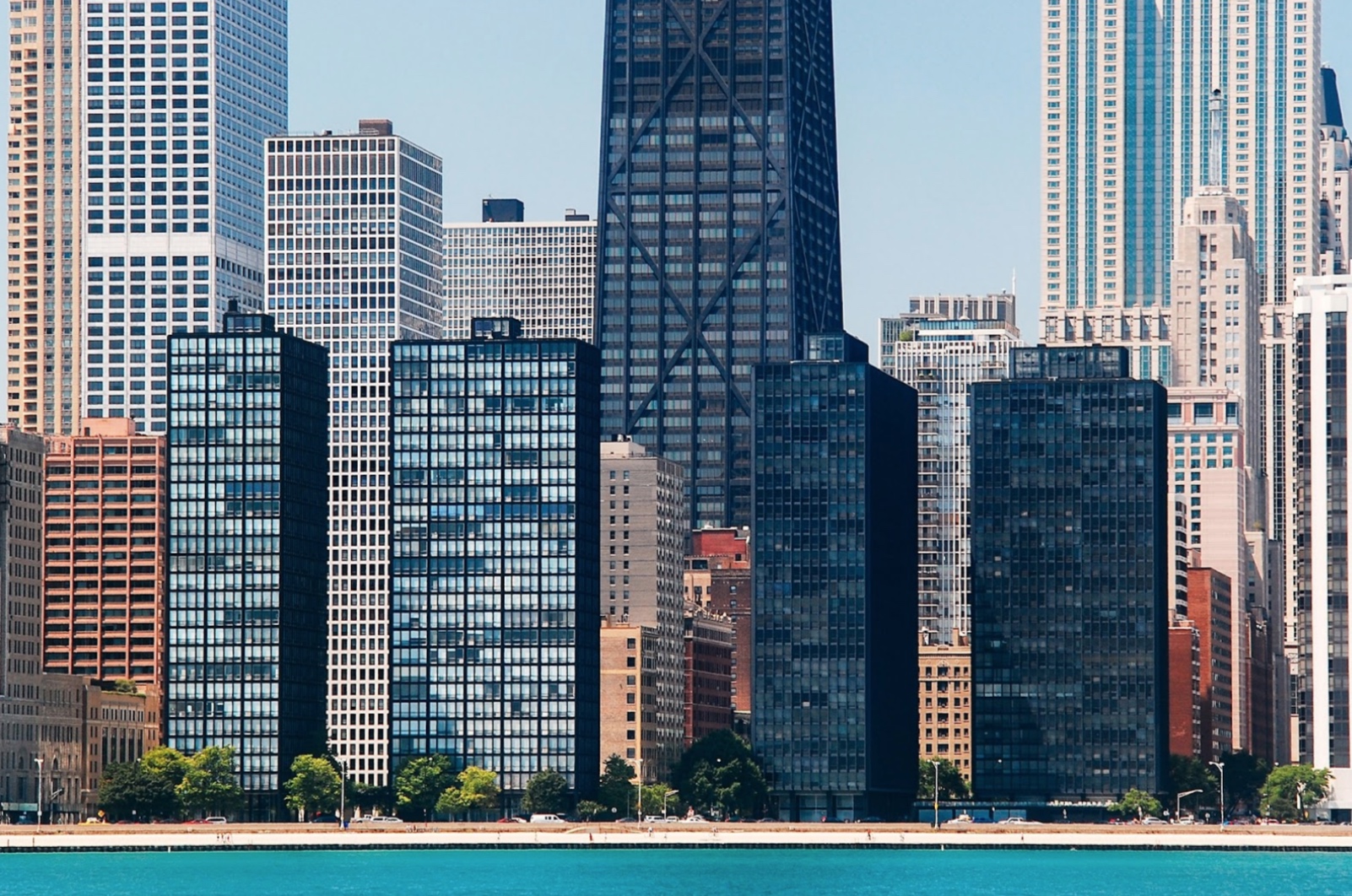Recent Posts
OPTIMA LAKEVIEW

Modernist tradition and design practices have been rooted in our identity at Optima for over four decades. The same appreciation for modernism is across countless iconic buildings throughout Chicago, where many of our multi-family residences reside. Here are just a few of the city’s modernist buildings we feel like everyone should know a little about:
Lake Shore Drive Apartments
Built in 1951, the twin residential towers, which reside at 860-880 Lake Shore Drive, exhibit modernist less is more ideology adopted by its architect, Ludwig Mies van der Roh. Originally seen as too complex, the project’s materials don’t stray from the norm as it utilizes steel, glass, and aluminum. Not long after their completion, even with the critics at the time, the Lake Shore Drive Apartments became a template for modernist buildings across the globe.
875 N Michigan Ave
Previously known as the John Hancock Center, 875 N Michigan Ave is one of the most recognizable buildings in Chicago’s skyline. At the time of its completion in 1968, the modern masterpiece became the second tallest building in the world and the tallest in Chicago – a title it held for over 20 years. Skidmore, Owing and Merill, the architects behind the skyscraper, were pioneers for the new era of skyscraper design at the time and were the same architects behind the Willis Tower. Complementing the building’s basalt-black color, its façade is complete with unique X-bracing and a system of framed tubes which have allowed it to become an architectural icon.
Marina City
Often referred to as “the corn cob”, the mixed-use buildings became the first of their kind when built in 1964. The circular complex was designed by architect Bertrand Goldberg – a student of Mies – as a self-contained town. Each building shares identical floor plans and includes a theater, bowling alley, and various stores and restaurants. One of the most unique features of the towers is the near-complete lack of right angles found in their unique interiors.
Charnley-Persky House
One of the oldest houses in Chicago, the James Charnley Residence was built in 1892 and is one of the only surviving residential works of Louis Sullivan. Often referred to as the “father of skyscrapers and modernism”, Sullivan was a mentor to Frank Lloyd Wright and helped establish Chicago School architecture. The building is often considered to be the first modern house in Chicago. Although it has an essentially classic form, Sullivan introduced modern aesthetics, like its clean and simplistic design, which separated it from other structures at the time.
S.R. Crown Hall
Created to house his alma mater’s – the Illinois Institute of Technology – departments of architecture, planning, and design, S.R. Crown Hall is one of Ludwig Mies van der Rohe’s most notable designs. The modern masterpiece was built in 1956 and is often recognized as one of the most architecturally significant buildings of the 20th century. Mies created Crown Hall utilizing basic steel and glass construction styles, creating a one-of-a-kind open space without interior obstructions. The building’s 18-foot-tall extended roof also helps to establish the feeling of universal space.
While these five of the city’s most iconic modern buildings, our list could go on forever. Next time you find yourself in downtown Chicago or traveling through the midwest, we encourage you to explore the modern masterpieces for yourself.

